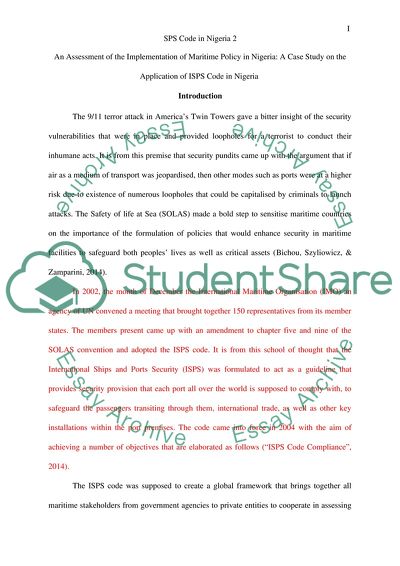Cite this document
(An Assessment of the Implementation of Maritime Policy in Nigeria Case Study, n.d.)
An Assessment of the Implementation of Maritime Policy in Nigeria Case Study. Retrieved from https://studentshare.org/politics/1872542-an-assessment-of-the-implementation-of-maritime-policy-in-nigeria-a-case-study-on-the-implementation-of-isps-code-in-nigeria-port
An Assessment of the Implementation of Maritime Policy in Nigeria Case Study. Retrieved from https://studentshare.org/politics/1872542-an-assessment-of-the-implementation-of-maritime-policy-in-nigeria-a-case-study-on-the-implementation-of-isps-code-in-nigeria-port
(An Assessment of the Implementation of Maritime Policy in Nigeria Case Study)
An Assessment of the Implementation of Maritime Policy in Nigeria Case Study. https://studentshare.org/politics/1872542-an-assessment-of-the-implementation-of-maritime-policy-in-nigeria-a-case-study-on-the-implementation-of-isps-code-in-nigeria-port.
An Assessment of the Implementation of Maritime Policy in Nigeria Case Study. https://studentshare.org/politics/1872542-an-assessment-of-the-implementation-of-maritime-policy-in-nigeria-a-case-study-on-the-implementation-of-isps-code-in-nigeria-port.
“An Assessment of the Implementation of Maritime Policy in Nigeria Case Study”, n.d. https://studentshare.org/politics/1872542-an-assessment-of-the-implementation-of-maritime-policy-in-nigeria-a-case-study-on-the-implementation-of-isps-code-in-nigeria-port.


